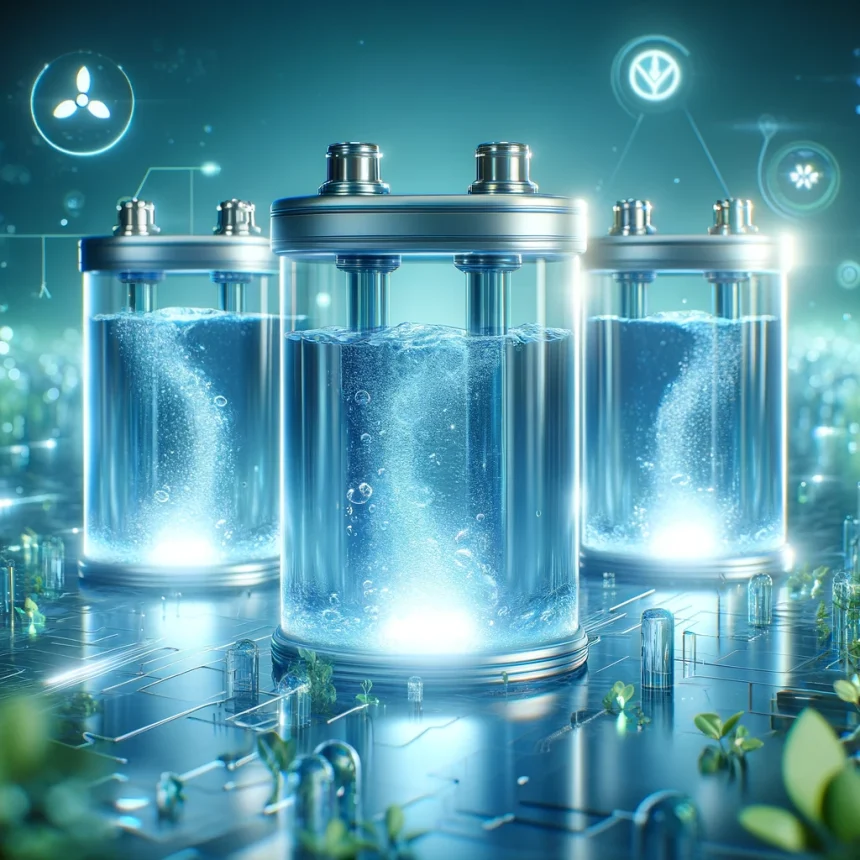In the evolving landscape of sustainable energy storage, a pioneering breakthrough has emerged with the creation of ‘water batteries,’ a novel form of energy storage that boasts an unprecedented level of safety—they are engineered to never explode. This cutting-edge innovation stands at the forefront of redefining the paradigms of energy storage, aligning perfectly with the global momentum towards sustainability and enhanced safety in battery technology and application.
The Genesis of Water Battery Technology
This revolutionary leap stems from the adoption of water-based electrolytes, a stark departure from the conventional lithium-ion batteries that depend on combustible liquid electrolytes. This strategic innovation not only addresses the critical issue of explosion risks associated with traditional batteries but also steers the path toward eco-friendly energy storage alternatives. The water batteries, through their unique composition, emerge as a sustainable and benign option, drastically diminishing the ecological impact traditionally associated with battery disposal.
Operational Dynamics and Efficacy
Water batteries harness the power of ion movement within an aqueous medium, a process that mirrors the energy storage and release capabilities found in traditional battery systems but is augmented by safety and sustainability. The elimination of flammable and volatile components within these batteries virtually nullifies the risk of explosions, rendering them a safer choice across a myriad of applications, from everyday consumer electronics to extensive energy storage infrastructures.
Comparative Benefits Against Traditional Batteries
Water batteries extend a suite of advantages over their conventional counterparts, encapsulating:
- Sustainability in Recycling: They employ materials that lend themselves to easier recycling processes, thereby promoting a sustainable lifecycle and supporting a circular economy within the battery industry.
- Economic Viability: The shift towards water-based electrolytes potentially reduces production costs, leveraging the widespread availability and cost-efficiency of water relative to the more scarce and expensive components of traditional batteries.
- Application Flexibility: The inherent adaptability of water batteries caters to a broad spectrum of uses, ranging from personal electronic devices to comprehensive grid-level energy storage solutions, thus amplifying their utility and impact.
Anticipated Challenges and Future Trajectories
Despite the notable milestone achieved with water batteries, the journey towards commercialization is laden with challenges, notably in enhancing the energy density and longevity to parallel or exceed lithium-ion batteries. Ongoing research endeavors are dedicated to advancing the electrochemical attributes of water batteries to meet diverse application requirements, from portable devices to renewable energy storage solutions.
Navigating Towards a Sustainable Future
The introduction of water batteries signifies a transformative shift in the energy storage domain, heralding an era where battery safety and environmental sustainability are paramount. As this technology undergoes further refinement and optimization, its adoption is poised to expand, promising a new chapter in energy storage that is harmonized with our environmental commitments and aspirations.
Epilogue
The advent of recyclable water batteries that inherently defy the risk of explosions marks a significant stride in the realm of energy storage innovation. Addressing pivotal concerns surrounding safety and environmental impact, this technology establishes a new benchmark for the future of batteries, paving the pathway towards a safer, more sustainable world empowered by advanced, eco-conscious energy solutions.








